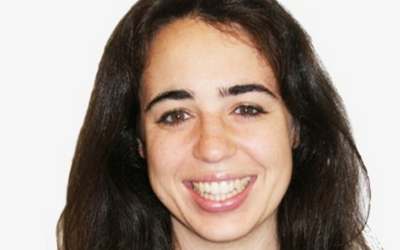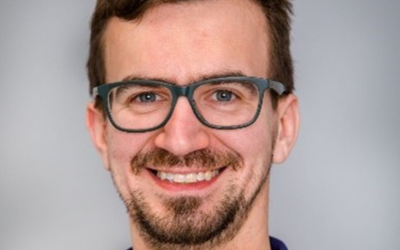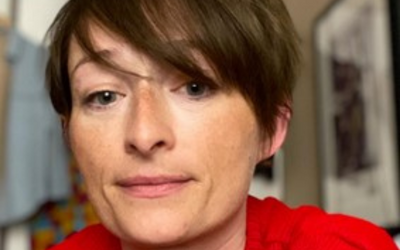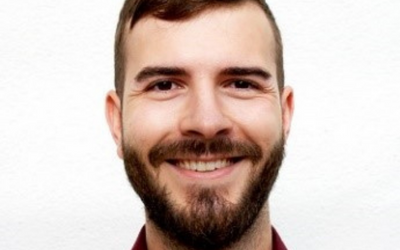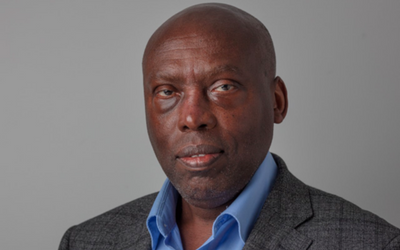You are here
- Home
- External Events and Publications
- Biennial APS Conference
- APS Conference 2023
- Conference programme
- Understanding the BAME awarding gap at The Open University by means of quantitative and qualitative data analytics
Understanding the BAME awarding gap at The Open University by means of quantitative and qualitative data analytics
Miriam Fernandez, Martin Hlosta, Tracie Farrell, Vaclav Bayer and Fidèle Mutwarasibo, The Open University
Email: miriam.fernandez@open.ac.uk
Session recording
Presentation
Abstract
Data-driven, student-centered approaches can reduce attainment gaps in higher education. In this seminar, we present the results of a project that has investigated the attainment gap for Black, Asian and Minority Ethnic (BAME) students at the Open University (OU) by means of a combination of qualitative and quantitative data analytics. We used a set of predictive algorithms (called OUAnalyse) developed at the OU to understand more about how students learn and analysed this data to investigate which patterns might be specific to different groups of students (including ethnicity, gender and combinations of these protected attributes). These include, for example, patterns of different ethnicities passing through the module milestones at different levels, or when BAME students withdraw as opposed to White students. We then presented the patterns we observed to 6 Black students, as well as six educators from diverse backgrounds. In a series of focus groups, we asked them how we should interpret these patterns.
Key findings include: (i) the university does not prepare enough for different cultural experiences and values lead to different expectations of the university experience, (ii) family responsibilities and expectations may be more significant for students from different cultural backgrounds or who start their university journey later, increasing financial burden and limiting time, (iii) immigration experiences (first generation, as well as immigration background in the family) impact many aspects of the educational experience, (iv) Black students and educators of diverse backgrounds experience racism, which is an added trauma that is typically not addressed by the university, (v) some Black students and educators worry that an OU degree, particularly if it is not a highly marked degree, may not be as advantageous for Black students, who may be held to higher standards than their white counterparts in the job market.
For studying the long-term effects of the awarding gap, an analysis of alumni might be fruitful.
References
Hlosta, Martin, et al. "Impact of predictive learning analytics on course awarding gap of disadvantaged students in stem." International Conference on Artificial Intelligence in Education. Springer, Cham, 2021.
Bayer, Vaclav, Martin Hlosta, and Miriam Fernandez. "Learning Analytics and Fairness: Do Existing Algorithms Serve Everyone Equally?." International Conference on Artificial Intelligence in Education. Springer, Cham, 2021.
Prof Miriam Fernandez
Professor of Responsible Artificial Intelligence, The Open University
Prof Miriam Fernandez is Professor of Responsible Artificial Intelligence at the Open University. She applies research and technology development to tackle the ethical and societal challenges posed by Artificial Intelligence (AI). Her research focuses on addressing biases, inequalities, and online harm. She has authored more than 100 scientific articles, including publications in the highest quality conferences and journals in her area of research, and acquired numerous external grants. Her commitment to education is demonstrated by the leadership of OUAnalyse, a strategic Open University project to apply machine-learning methods for the early identification of students at risk.
She is Equality and Diversity Champion at the Open University, editor of several top journals in the domain, Work Package/Project leader in large international and national projects, and has filled multiple prominent roles in organising some of the most influential conferences in her scientific field.
Martin Hlosta
Senior Researcher: Swiss Distance University of Applied Sciences (FFHS), Switzerland and Visiting Researcher (KMi), The Open University
Martin Hlosta is a Senior Researcher at the Institute for Distance Learning and eLearning Research (IFeL) at Swiss distance university of applied sciences (FFHS) and a visiting researcher at KMi, OU. Before joining FFHS, he led OUAnalyse at OU - a Predictive Learning Analytics project deployed in all undergraduate courses, improving student retention, teachers practice. Currently, he is leading research and teaching in Learning Analytics at FFHS. His most recent project funded by Unity and Meta to target inequalities in education explores how VR and enhanced analytics for reflection can help teachers in South Africa.
Tracie Farrell
UKRI Future Leaders research fellow (KMi), The Open University
Tracie Farrell is a UKRI Future Leaders research fellow at the Knowledge Media Institute (KMi) of the Open University. Her current research explores how Artificial Intelligence (AI) contributes to the goals of Equality, Diversity, Accessibility and Inclusion, particularly from queer feminist perspectives. This includes understanding how AI impacts those with marginalised identities, the opportunities and benefits of AI, as well as the ways in which it perpetuates inequality and frustrates social justice.
Vaclav Bayer
Projects technical lead, OU Analyse (KMi), The Open University
Vaclav has worked at the Knowledge Media institute on different successful projects for the last six years. He was a Web developer on CORE - the world's largest collection of open-access research papers. He is currently part of the OUAnalyse team as a technical lead of the project. As a part-time PhD student, he investigates how Learning Analytics can be used to target awarding gaps, which is a severe problem occurring in Higher Education institutions across the whole UK. He is currently focusing on developing an Equity, Diversity and Inclusion dashboard to spotlight awarding gaps across diverse groups of students within their modules and help understand the driving factors of awarding gaps.
Fidèle Mutwarasibo
Lecturer, Work Based Learning (FBL) and Director of OU’s Centre for Voluntary Sector Leadership, The Open University
Fidèle is a Lecturer in Work-Based Learning at the Faculty of Business and Law and Director of The Open University’s Centre for Voluntary Sector Leadership. He has academic and professional qualifications in several disciplines, including a PhD in Sociology from University College Dublin. He previously worked in the voluntary sector at all levels (volunteer, executive and trustee/director) in Central/East Africa, Ireland, and the UK. Fidele is an expert in equality, diversity, inclusion, and participation and previously served as a commissioner on the Irish Human Rights and Equality Commission. In 2015 he founded DILEAS Consulting, a consultancy vehicle specialising in EDI and worked with several clients before he started working as a full-time academic at The Open University. He is researching inclusive leadership and collaboration practices that address racial equity, where the leadership of racialised minorities plays an active and meaningful role.
